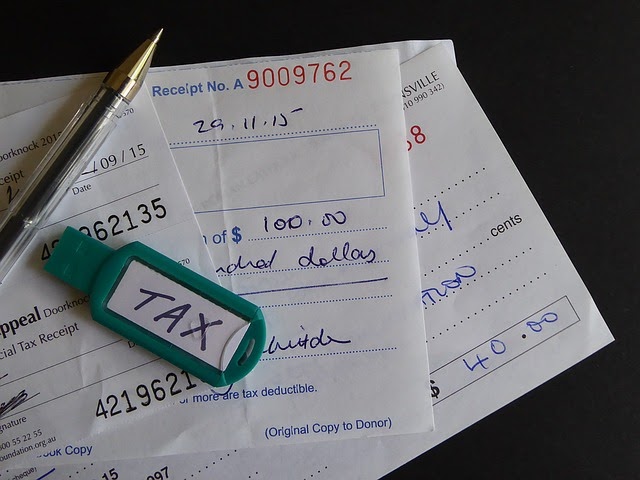Once you start a business, either small or large, you must file returns and pay taxes accordingly. However, the taxman has several tax reliefs depending on the industry you operate. Many entrepreneurs end up forgetting such deductions, leaving them unclaimed. Individuals starting up a business may not know all the deductions they are supposed to make unless they make consultations or employ someone who has been in the tax field for long. This article will discuss some of the deductions that every entrepreneur must know and acclaim them when filing for deductions. Here is the list.
1. Home Deduction
Do you work from home? Does your business take some space in your living house? If you are running your business from home, or you are an employee who’s working from home, then you qualify for the home office deduction. There must be a measurable space in your house to carry out your business to claim this deduction. The area should contain only business particulars. This deduction does not apply to a full-house room. It has to be a shared room, which you must calculate according to square footage and deduct its cost.
The percentage you get from this deduction must be a fraction of what you pay on rent, electricity, mortgage, insurance, and other charges. There are no other simpler forms. It would help if you did these calculations to come up with something evident. If you wrote-off such in your previous expenses, you wouldn’t be able to bring it out in the next stage.
2. The 20% Deduction
The 20% deduction is new tax relief for businesses. If you own a large company, then there is a cut-rate from 35% to 21%. The businesses that are getting the 20% deduction on taxes include sole proprietorships, partnerships, single-member limited liability, companies, and corporations. This cut is for a business whose income passes through Form 1040 from Schedule C and other tax forms provided by the IRS. Also, individuals In service industries get this deduction if their income is above the set limit. Such individuals include accounting and consulting firms, finance, law, and other service providers. Large gains get exempted from this cut.
3. Office Supplies
Does your business run on supplies? If so, you can deduct all the supplies you use to run your business when filing for your taxes. Such office supplies include pens, papers, USB drives, Printer cartridges, Janitorial and cleaning supplies, Recordkeeping supplies including sales receipts and invoices, bathroom tissue, fixing of cabinets and storage lockers, Beverages for the employee, and other office requirements. You have to include declarations for such purchases, including posting charges. Postings for goods sold will require a different deduction. You also need to include other expenses for running the office, including cloud services, Web site service, Software, computers, employee cell phones, among others.
4. Furniture and Equipment
When you buy furniture for your business, you can deduct such when filing for returns. Section 179 requires entrepreneurs to deduct up to $1 million of furniture and equipment purchases. It enables owners to subtract the full price of such equipment from their gross income. Other business assets also get a 100 percent depreciation bonus from furniture and equipment. Assets included under Section 179 for deductions include the Office furniture, Machines or equipment for use in business, SUVs, pickups, and vehicles weighing above 6,000 pounds and improvements to any business property’s interior.
5. Mileage
Mileage deduction applies if you drive when carrying out your business. To get this kind of reduction, you need to document all trips, including their mileage, parking costs, tolls, and the reason for traveling. The deduction can be in two ways, either by taking the total mileage with tolls and parking or measuring the whole business usage while subtracting individual driving. Gas, repairs, and insurance must include in these deductions.
If you have leased the vehicle, you need to include the expense. For entrepreneurs buying the car, you need to incorporate the loan and the car’s depreciation value. If you work at home, your mileage begins once you hit the driveway, and if you have an office, your mileage begins at the first destination while ending at last.
6. Travel and Meals
Travel and meals get deducted when you take out clients for meals, sporting events, outing, or any other business-related event. Meals are deducted at 50% as long as they aren’t extravagant or lavish. If it’s a football match or any other game that requires a ticket, tickets won’t be deductible, but food and drinks can get deductions at 50%. Other things deducted from these travel and meals include company cars used to ferry guests, lodging, food provided to employees at the office, and other items as stipulated by the taxing department.
7. Insurance Premiums
Not all insurance premiums are covered, and for this, you need to confirm with your tax department. If self-employed and pay for your health premium, you can deduct such from your tax returns. Other people covered in this include employees, spouses, and other people, as stipulated in the returns form. You can add long-term care for you, your family members, and any other dependents for the insurance premiums. IRS instructions must be followed to the latter when filing for such deductions since sometimes they get complicated.
8. Telephone Charges
If you use your phone to make business calls at home, you can file the cost to get deductions. This deduction only happens when you have a second line that you use for business only. General use of your phone does not qualify for such abatements. This case is necessary when you haven’t installed a landline in your home, and you only use cell phones. The deduction is by calculating the percentage of time you use on your phone, versus the time used to make only business calls.
Image Source: Pixabay.com
Other things you can consider in tax deductions include child labor when you employ underage, social security payments, retirement contributions, and any other deductions listed by the Internal Revenue Service (IRS). These deductions do not apply to any business and don’t imply every time. You need to consult your tax agency and get the list of what you are supposed to deduct from your tax filings and what not to file. We hope this list has enlightened you as an entrepreneur.



